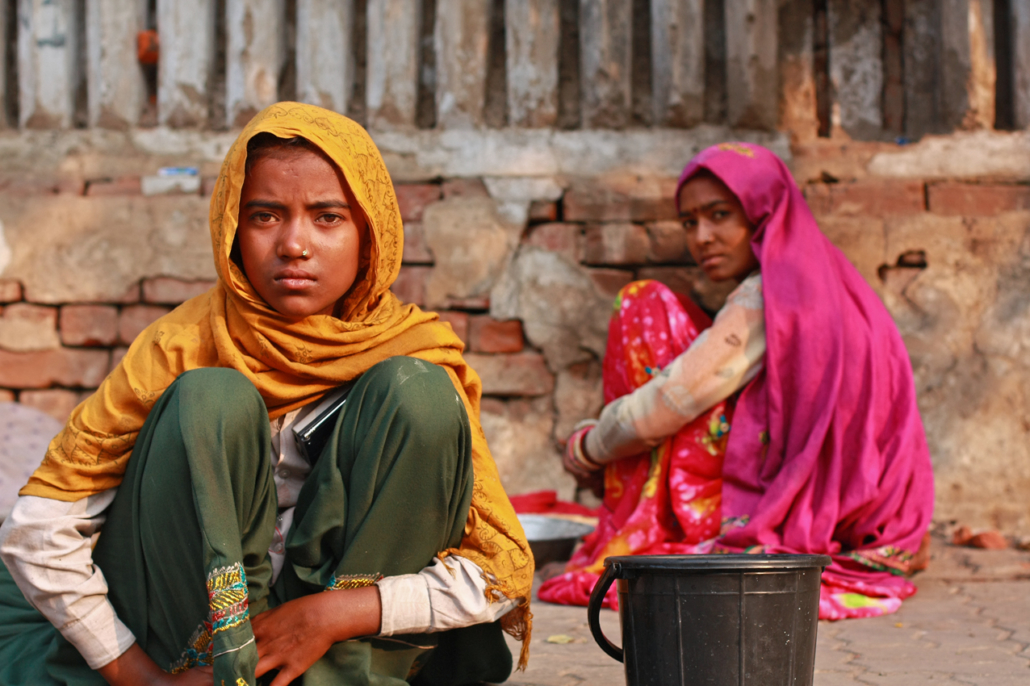The Pandemic’s Effects On Women: Period Poverty and Domestic Violence

As COVID-19 forces the world into lockdown, people are scrambling to provide medical services and save toppling economies. The pandemic affects schools and workplaces and everyone is struggling to adjust to a new way of life. Amid all the chaos, the world is overlooking other issues. The pandemic’s effects on women, which are especially harsh, are buried underneath the plethora of other challenges. Two of the greatest issues women face are period poverty and domestic violence, both of which the pandemic exacerbates.
Period Poverty
Period poverty manifests in a lack of access to restrooms, sanitary products, education on menstrual hygiene and improper waste management. Now, with disrupted supply chains of period products, increased financial strain and lockdowns making it difficult to go out and purchase basic amenities, women are having a harder time than ever accessing these necessities. Forced to make do with what they have, women put themselves at risk of infections and diseases, including cervical cancer.
High costs and taxation are also major contributors to period poverty. In the United States, for instance, menstrual products are subject to tax in many states. Though just as important, menstrual products are taxed while other essentials, like food and medicine, are not. Only nine out of 50 states in the U.S. have policies against taxing menstrual products, a situation not unique to the U.S. Across the world, even without tax, the costs of products are too high for those living in poverty to afford. According to Days for Girls, more than 500 million females endure period poverty globally.
Fortunately, where legislation and policies fall short, nonprofit organizations and charities are stepping in. Groups distributing products to women in need include I Support the Girls and PERIOD. These organizations are also helping to raise awareness about the pandemic’s effects on women.
Domestic Violence
Increased domestic violence is another dire consequence of the pandemic. Due to stay-at-home orders, many women and children are stuck with their abusers. An estimation by the United Nations Population Fund predicts that six months of lockdowns will cause 31 million more cases of gender-based violence. According to the National Hotline on Combating Domestic Violence, calls increased by 25% during the first two weeks of quarantine. Lockdowns also make it difficult for survivors and victims of domestic abuse to receive the treatment and support necessary.
Fortunately, people have begun to take note of these issues. Actress Charlize Theron began a campaign, Together For Her, which is working to address the additional cases of gender-based violence resulting from the lockdowns around the globe. In an interview with Vogue in May 2020, Theron states that she is distributing funds from the Together For Her campaign to “shelters, psychosocial support and counseling, helplines, crisis intervention, sexual and reproductive health services, community-based prevention and advocacy work to address gender-based violence.”
More than 50 prominent female celebrities in the fields of film, sports, music and more have shown support for Theron’s campaign. Actress Mariska Hargitay has contributed to Together for Her and says about the movement, “As someone who has worked on gender-based violence issues for two decades, I am proud to join such a powerful group of women to shine a light on the challenges facing survivors of domestic violence — not just during this pandemic but every day.” Together for Her gives women a voice and unites them in the face of difficulty.
Moving Forward
COVID-19 affects lives around the world but has hit some groups harder than others, especially women. Global lockdowns have greatly amplified the issues of period poverty and domestic violence and women and children are more vulnerable than ever. Fortunately, organizations are working to address the pandemic’s effects on women, supplying menstrual products and giving support to those who need it. Moving forward, it is essential that these efforts continue. Though times are challenging, through the persistence and dedication of the people behind these movements, well-being can prevail.
– Alison Ding
Photo: Flickr
